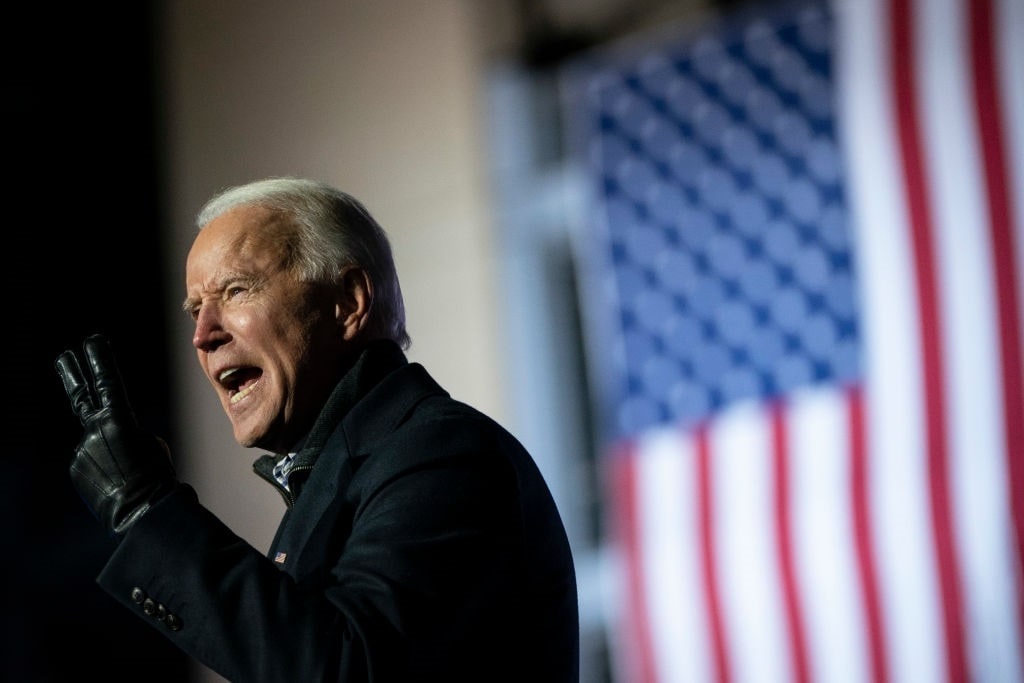Political rumblings in Europe of the decidedly “right-wing” variety, an insurgent underdog Donald Trump rising in the polls to take on the Democratic Party’s establishment choice … It’s beginning to look a lot like 2016 all over again. For those who seek political portents in the entrails of unfortunate birds, or even more unlikely, in the headline statements of polling companies, there is one predictor of outcomes that has proven more reliable than any other: history.
The signs and the omens that heralded Donald Trump’s victory in the 2016 election appear to be recreating themselves. Before Trump came Brexit, and before Brexit came a surge in right-leaning populism across Europe. With Geert Wilders’ stunning success in this week’s Dutch parliamentary elections, politicians on the left are warning of political armageddon. Now, where have we heard that before?
Wilders Gone Wild?
Dutch politician Wilders has been at the front line of what his opponents call the “far-right” of “European extremism” as the head of the Party for Freedom (PVV) for more than two decades. He has called for a halt to mass immigration, the defunding of Mosques and Islamic schools, and for Holland to leave the European Union. On Wednesday, November 22, PVV won 37 seats in the House of Representatives – making it by far the largest party. Wilders will now have to form coalitions to get the requisite 76 seats for a majority (a common occurrence; the last government took over 250 days to complete negotiations).

Geert Wilders (Photo by Patrick van Katwijk/BSR Agency/Getty Images)
The meltdown from the left was instantaneous. Dutch broadcaster BNNVARA emailed employees offering time to “mourn” and speaking of a “dark dawn, threat to society.” London Mayor Sadiq Khan warned that this election was a “reminder to progressives everywhere – the continued threat of the far-right is real and on our doorstep.” The chief of press of the Dutch Muslim party, Denk (a party for Muslims and Islamic issues), said of Wilders’ win that it “feels like my 9/11.”
Wilders was a significant figure in European politics back in 2016. His resurgence echoes that of another major player in the populist movement of the time.
Farage Has Done What?
Mr. Brexit, Nigel Farage has undergone a number of substantive changes since leading the Brexit charge in 2016. He quit the United Kingdom Independence Party (UKIP) in 2018 and went on to form the Brexit Party (now called Reform), which appears to be vacuuming up former Conservative Party supporters at a relatively fast pace. Mr. Farage also helms GB News, a major new player in British media, and is presently taking part in the reality TV show I’m a Celebrity, Get me Out of Here – in which he is undergoing “jungle trials” in the Australian Bush.
With the increasing unpopularity of unelected Prime Minister Rishi Sunak and his Conservative Party, rumblings around Whitehall are that a new party leader could come a-calling. On October 19, Farage said during an interview – in an admittedly tongue-in-cheek manner – that “I’d be very surprised if I were not Conservative leader by ’26. Very surprised.” And while he may have been joking, the prospect of a Tory Party under Farage’s leadership is an appealing one to many disgruntled voters.
At the most recent Conservative Party conference, he could be found partying and dancing with high-level cabinet appointees and was treated with “rock-star status” by the younger members. It seems that Nigel Farage’s political star is once more on the rise, a trajectory he shares with his cross-Atlantic parallel.
Trump 2016 Version Back Again
Part of Donald Trump’s appeal in 2016 was that he was an underdog, a political outsider who was ready to shake up the cozy Washington, DC, establishment set. It was a position that allowed to him to “punch up” at opponents and sell his particular brand of America First populism. Hillary Clinton was the perfect establishment foil, and with the media ready to defend her, come what may, American voters envisaged a ballot box revolution. And that’s what they got – until COVID.

Joe Biden (Photo by Drew Angerer/Getty Images)
During an October 2020 presidential debate, former Vice President Joe Biden said loudly and without qualm that “Anyone who’s responsible for that many deaths should not remain as president of the United States of America.” Just a few months later, Biden assumed office and was “responsible” for many more deaths than occurred under Trump’s watch. But that was still in the future, and it would have been a tough call for any president to weather a once-in-a-century pandemic. Now, however, Joe Biden has to deal with his own track record in office, and Trump has once again become the underdog challenger.
Yes, the Fourth Estate is backing Biden with a degree of favoritism that would have Soviet Commissars blushing. And yes, Donald Trump is facing more than 90 felony charges, all of which could be adjudicated before the November 2024 election. Yet the public doesn’t seem to care. Liberty Nation recently reported:
“One would be hard-pressed to find a glimmer of a silver lining for the president in recent polling, which runs the gamut from losing to Donald Trump in crucial swing states to coming in a distant second on every area of importance to the average voter. In fact, despite a steady cacophony regarding the surefire destruction of democracy should Trump prevail next November, the momentum seems to be moving in the wrong direction for Biden.”
Former President Donald Trump has come first in the last ten polls released and has – according to RealClearPolitics – an aggregate lead of 2.4%. The underdog status appears to work well for 45.
History Repeats?
The signs are there for those who choose to read them. The Brexit vote was a psychologically significant event; it was the working class against the elite, it was the nation-backers versus the globalists – and it was a success. That win presented a glimmer of possibility across the Atlantic, and voters saw that perhaps their David could beat the establishment Goliath.
Argentina has a new populist leader in the form of Javier Milei, Holland has favored the once-despised Geert Wilders, Britain is going into a Farage Frenzy, and America is once again considering its relationship with Donald Trump. 2016 was a political earthquake for the Western world, but unlike lightening, earthquakes can, indeed, strike twice.

